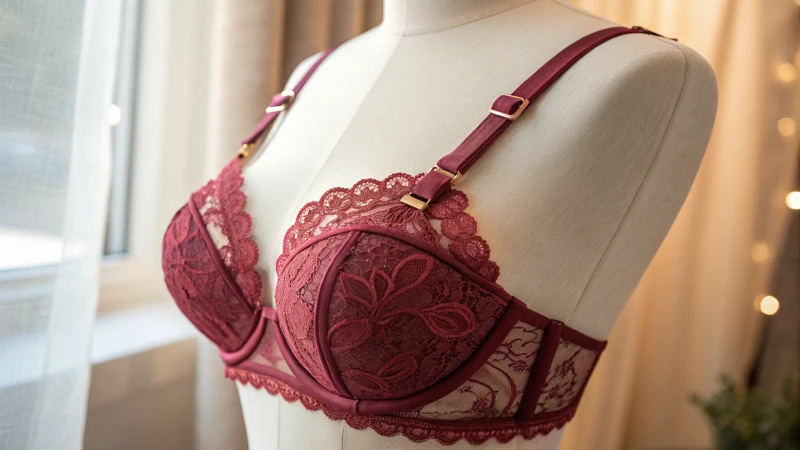
I gaze into 2025 and feel the strong rhythm of change in the market. Small businesses like mine find themselves at a turning point. We must stay flexible. How do we adjust and succeed?
Low minimum order quantities (MOQs) are crucial for small businesses in 2025, offering reduced financial risk, improved cash flow, and greater flexibility in product testing and customization. These advantages allow businesses to respond swiftly to market trends and consumer demands, ensuring sustainable growth and competitiveness.
Low minimum order quantities (MOQs) are very important for us small business owners in 2025. I remember the fear of committing to large inventory orders. My cash flow would decrease quickly. Now, low MOQs allow me to test new products without risking everything. This flexibility helps me respond quickly to trends and consumer needs. My business stays competitive and sustainable. It’s more than just numbers. It’s about the freedom to explore and try new things. I know I won’t have too much extra stock.
Low MOQs reduce financial risk for small businesses in 2025.True
Lower minimum order quantities minimize upfront costs, allowing small businesses to invest wisely and mitigate financial losses while adapting to market changes.
High MOQs are more beneficial for small businesses in 2025.False
In 2025, low MOQs provide better cash flow and flexibility, which are essential for small business survival and growth in a dynamic market.
What Are the Key Advantages of Low MOQs for Small Businesses?
Do you ever think about how small businesses survive in a tough market? Knowing the advantages of low minimum order quantities (MOQs) probably opens up great chances for growth. These chances also support sustainability.
Small businesses enjoy big advantages with low MOQs. The risk of losing money stays low. Businesses probably manage their cash flow better. They often test products with more freedom. Customization becomes easier with low MOQs. Businesses have more flexibility. Quickly adjusting to market trends becomes possible.

Reduced Financial Risk
Low MOQs bring many benefits to small businesses. They lower financial risk, improve flexibility and mirror market trends. I want to share why choosing low MOQs changed everything for many business owners, myself included.
Low Minimum Order Quantities (MOQs) significantly decrease financial risk. Launching my men's underwear line was scary. I feared investing too much in inventory. Thankfully, low MOQs let me avoid big upfront purchases. Instead, I tested the market without having too many unsellable products.
When I started my underwear line, I offered only a few styles and colors. This choice helped me understand customer preferences without facing the burden of extra stock. It was refreshing!
Better Cash Flow Management
Cash flow is crucial for a business's success, especially at the beginning. Low MOQs helped me manage cash flow better. Rather than locking up a lot of money in large orders, I placed smaller orders. I used the saved money for important things like marketing and developing products.
I remember the stress of high costs when starting my business. Smaller orders let me keep enough money flowing, which was a relief. Every dollar mattered then and it still does now.
Flexibility for Product Testing
Testing new products feels uncertain, but low MOQs turn it into a fun experiment. Low MOQs provide an excellent opportunity for product testing as well; I launched new designs in small batches, gathered feedback and decided whether to expand them.
This strategy was helpful when I tried different underwear styles. Here’s how it looked:
| Product Type | Test Quantity | Customer Feedback | Next Steps |
|---|---|---|---|
| Basic Briefs | 100 units | Positive | Increase order to 500 units |
| Printed Boxers | 50 units | Mixed | Rework design based on feedback |
Customization Opportunities
Low MOQs allowed customization, letting me create products for specific audiences. Entrepreneurs can create niche products tailored to specific audiences, enhancing their brand's uniqueness and appeal.
I tried eco-friendly materials and released limited organic cotton underwear editions that attracted environmentally conscious consumers. Seeing customers connect with value-reflective products was fulfilling.
Personal touches in my offerings built a sense of community among customers leading to increased satisfaction and loyalty.
Agility in Responding to Trends
The fast-paced fashion world is like a rollercoaster; low MOQs give businesses the necessary quickness to stay ahead of emerging trends or shifts in consumer preferences.
A certain underwear style became a social media hit; with low MOQs, I quickly produced and sold that trendy style without waiting long.
Lower Overhead Costs
Low MOQs helped me lower overhead costs related to storage and inventory management; smaller orders needed less warehouse space reducing rent costs and inventory expenses.
This reduction in overhead allowed businesses like mine to invest more in quality control while maintaining high standards in every product keeping customers happy.
Supply Chain Flexibility
Low MOQs offer supply chain flexibility which is crucial in unpredictable markets; smaller orders helped me avoid the usual delays and disruptions of bulk orders ensuring operational efficiency.
Stronger Supplier Relationships
Strong supplier relationships are vital for any business; with low MOQs, I repeatedly placed smaller orders building trust over time leading to better terms and more collaborative chances.
My suppliers now prioritize my orders during busy times thanks to our strong relationship boosting my business stability.
Sustainability
Lastly, sustainability is key; low MOQs reduce waste because I order only what's required minimizing surplus products that might end up in landfills—this practice resonates with eco-conscious consumers appreciating our focus on sustainability.
In conclusion, low MOQs bring a wide range of benefits for small businesses from financial gains to flexibility and sustainability practices. If you're unsure about adopting low MOQs believe me it's worth considering! For more insights on optimizing your purchasing strategy check out our guide on effective inventory management1.
Low MOQs reduce financial risks for small businesses.True
By avoiding large upfront investments, low MOQs help small businesses prevent overstocking, thereby reducing financial risks associated with unsold inventory.
Low MOQs hinder product testing opportunities for startups.False
Contrary to this claim, low MOQs actually facilitate product testing, allowing startups to experiment with new designs and gather customer feedback effectively.
How Can Low MOQs Transform Your Cash Flow Management?
If you own a small business like I do, you understand that cash flow keeps your dreams alive. Low Minimum Order Quantities (MOQs) help you reach financial stability. But what makes this strategy special?
Low MOQs improve cash flow management. They lower upfront costs and keep liquidity high. They help reduce the risk of overstock. They also allow businesses to adjust quickly to market demands. Quick adjustments are very important. In competitive environments, this flexibility is really vital for success.

The Financial Flexibility of Low MOQs
Low Minimum Order Quantities (MOQs) significantly alleviate financial pressure for small businesses by reducing the need for large upfront investments. This flexibility allows businesses to maintain a healthier cash flow, crucial for survival in competitive markets.
For instance, by ordering in smaller quantities, businesses can avoid tying up capital in unsold inventory. This is particularly important for businesses facing seasonal demand2.
Cash Flow Management
Managing cash flow effectively is essential for any business. Low MOQs play a critical role by enabling:
- Liquidity Maintenance: Smaller orders leave my funds free. I can handle unexpected expenses easily, like sudden production cost rises.
- Reduced Overhead Costs: Low MOQs mean smaller storage needs. I save big on warehousing and logistics costs.
| Benefit | Description |
|---|---|
| Liquidity Maintenance | Keeps cash available for daily operations and expenses |
| Reduced Overhead | Lowers costs related to excess inventory management |
| Risk Mitigation | Minimizes financial risk from overstocking |
Agility in Market Response
In today’s fast-paced market, agility is key. Low MOQs enhance a business's ability to respond quickly to market changes, allowing them to:
- Test new products without significant financial commitment.
- Adjust their offerings based on customer feedback and sales data.
This adaptability not only boosts cash flow but also fosters innovation within the company. For more insights on how to enhance your product line with low MOQs, check out this guide3.
Building Stronger Supplier Relationships
Low MOQs facilitate stronger relationships with suppliers. By placing smaller orders more frequently, businesses can:
- Build trust through consistent interaction.
- Negotiate better terms and conditions based on established loyalty.
These partnerships can lead to improved pricing strategies, further enhancing cash flow management as costs become more predictable.
Sustainability and Cash Flow
Sustainable practices are becoming increasingly important for consumers. Low MOQs support sustainability efforts by reducing waste associated with excess inventory. Businesses that adopt environmentally friendly practices often attract a loyal customer base, which can positively impact revenue streams. To learn more about sustainability in business, visit our resource center4.
In conclusion, low MOQs changed my cash flow management deeply. This strategy eases financial pressure. It fosters innovation and sustainability on my business path.
Low MOQs reduce the need for large upfront investments.True
By allowing smaller purchases, businesses can avoid significant capital expenditure upfront, enhancing cash flow management.
Low MOQs increase the risk of overstocking for businesses.False
Contrary to this claim, low MOQs actually minimize overstock risks by allowing more flexible inventory management.
How Do Low MOQs Inspire Creativity and Customization?
Ever thought about how small minimum order quantities (MOQs) inspire creativity and new ideas in businesses? This is an exciting topic. Small MOQs are a big advantage for entrepreneurs like us. They truly change the game.
**Small minimum order quantities (MOQs) encourage creativity and personalization. These low quantities reduce financial risks. Companies test products effectively. Cash flow is easier to manage. Sustainable practices become possible.
This flexibility allows businesses to quickly satisfy market demands. Companies build strong ties with suppliers. They really do.**

Reduced Financial Risk
Low minimum order quantities (MOQs) are more than just numbers; they open doors to fresh ideas and custom designs that really change a business. I remember when I began in fashion, the thought of buying large amounts of products felt like standing on the edge of a cliff. Low MOQs gave me a much-needed safety net, letting me try new things and adjust without fear of failing.
Managing money is a big challenge for new businesses and low MOQs help a lot with this. Smaller orders allowed me to start cautiously without falling into debt.
For example, developing my first sustainable underwear line, I aimed to create something special without using all my savings. By ordering only a few hundred pieces, I tested the market, measured interest and adjusted based on feedback - all without the stress of extra products piling up.
Better Cash Flow Management
For fresh entrepreneurs, cash flow is really important for any business. Low MOQs let me keep good cash flow by investing in smaller amounts instead of locking money in large orders.
Consider a scenario where I paired up with a mid-sized brand wanting to expand into men’s underwear. We chose smaller batches, saving money for marketing, which paid off greatly.
Flexibility for Product Testing
The beauty of low MOQs is their flexibility. They allowed me to test new products in real-time, tweaking them based on customer feedback. This method was very valuable in my early days, as customer preferences were still a mystery.
| Product Type | MOQ | Testing Phase | Feedback Cycle |
|---|---|---|---|
| Men's Underwear | 100 units | Customer Surveys | 2 weeks |
| Women's Apparel | 200 units | Focus Groups | 4 weeks |
Customization Opportunities
A thrilling aspect of low MOQs is the chance for personalization. I enjoy creating limited edition pieces or custom items that cater to niche markets.
When I launched my sustainable underwear line, customizing designs based on customer wishes brought joy. This made our products unique and built loyalty among customers who felt connected to their purchases.
Agility in Responding to Trends
Fashion changes fast and trends can shift overnight. Low MOQs provide the agility to react quickly without being stuck with huge inventories. For example, when a new fabric trend appeared, I placed smaller orders to see its popularity, keeping us up-to-date.
Lower Overhead Costs
Starting out, I watched overhead costs closely. With low MOQs, I greatly reduced storage needs. This was very helpful for my small startup, keeping expenses in check.
| Cost Type | Traditional Approach | Low MOQ Approach |
|---|---|---|
| Warehousing | $5,000/month | $1,500/month |
| Insurance | $500/month | $150/month |
Supply Chain Flexibility
Handling supply chains can be hard but low MOQs offer much-needed flexibility. They let me switch suppliers or change orders based on the market which is essential in a changing environment.
I once had to adjust an order based on customer feedback and doing so without big losses was invaluable. It's all about staying adaptable.
Stronger Supplier Relationships
Low MOQ agreements enabled stronger ties with suppliers. This cooperation leads to better terms and improved service over time. Working closely with suppliers fosters a space where fresh ideas flourish.
Sustainability Benefits
Lastly, low MOQs support sustainability greatly by producing only what's needed; we minimize waste and promote eco-friendly practices that deeply resonate with today’s mindful consumers.
In my quest for sustainable fashion adopting low MOQ strategies showed my commitment to the environment while creating products that connect with eco-conscious shoppers.
Low MOQs reduce financial risk for startups.True
By allowing smaller orders, businesses can test products without large investments, minimizing financial exposure.
Low MOQs hinder product testing and innovation.False
In fact, low MOQs enhance product testing flexibility, enabling businesses to innovate based on consumer feedback.
How Can Small Businesses Build Stronger Supplier Relationships with Low MOQs?
Small businesses often face difficulties with low Minimum Order Quantities (MOQs). It feels like balancing on a tightrope. I understand this struggle well. Strong supplier relationships play a crucial role here. These connections are more than just beneficial; they are essential. Overcoming these challenges requires solid partnerships. Solid partnerships could lead to lasting success.
Small businesses need clear communication to build stronger relationships with suppliers. Negotiating fair terms with a spirit of cooperation helps a lot. Consistent orders and timely payments show reliability. Reliability is crucial. Long-term partnerships grow through joint projects. Technology improves interactions. Technology is important.

Emphasizing Clear Communication
To foster strong supplier relationships, small businesses must prioritize open and transparent communication. This involves:
- Regular check-ins to discuss expectations and progress.
- Addressing issues promptly to prevent misunderstandings.
- Utilizing technology such as emails, video calls, or project management tools to enhance interactions.
For example, I started bi-weekly meetings with my suppliers. We talked about expectations and progress. This helped us fix problems quickly and avoid misunderstandings. If you feel unsure about how to start, remember: your suppliers want to succeed too! Learn more about effective communication5.
Negotiating Fair Terms
Negotiating can feel scary, especially with low MOQs. At first, I thought I needed to fight for every cent. Later, I found working together for solutions gave better results:
- Be transparent about your budget constraints while expressing your desire for a long-term partnership.
- Propose flexible terms that can accommodate both parties, such as staggered orders that allow for lower initial quantities but increase over time.
- Consider offering suppliers exclusivity on certain designs or products in exchange for more favorable terms.
Utilizing negotiation tactics can lead to mutually beneficial agreements. For instance, I was honest about my budget limits but shared my hope for a long partnership. This approach worked really well! Explore negotiation strategies6.
Building Trust through Reliability
Trust matters greatly in any relationship, including with suppliers. Small businesses can build trust by:
| Action Item | Benefits |
|---|---|
| Delivering consistent orders | Establishes a reputation for reliability |
| Paying invoices on time | Enhances trust and encourages supplier loyalty |
| Providing feedback on product quality | Helps suppliers improve their offerings |
When I placed small but regular orders and paid promptly, my suppliers trusted me more. They became more open to my low MOQs later on because they saw my reliability. Find tips on building trust7.
Fostering Long-Term Partnerships
Long-term partnerships can really change the game for small businesses. They bring stability and new opportunities! Strategies include:
- Joint Marketing Initiatives: Working together on marketing increased visibility for both parties and strengthened our bond.
- Shared Innovation: Collaborating on product development let me share my vision and my suppliers adjusted their production accordingly.
- Feedback Loop: A feedback system helped both adapt to performance and market changes.
Once, I invited a supplier to co-create a limited-edition collection. This joint effort used both our strengths and brought us closer. Learn about building long-term partnerships8.
Embracing Technology and Tools
Technology can feel overwhelming, but it really helps supplier relationships:
- Use inventory management software to better predict ordering needs and avoid excess stock.
- Implement a Supplier Relationship Management (SRM) system to streamline communication and document shared agreements.
- Leverage e-commerce platforms to showcase products and share feedback effectively.
These tools improved my efficiency and changed how I worked with suppliers. Tracking order history and performance metrics made sharing insights with suppliers much simpler. Discover tech solutions for better management9.
Clear communication is essential for strong supplier relationships.True
Open dialogue helps prevent misunderstandings and aligns expectations, which is crucial for small businesses working with suppliers.
Negotiating flexible terms can benefit small businesses with low MOQs.True
Collaborative negotiations allow small businesses to manage costs while building long-term partnerships with suppliers, enhancing mutual benefits.
Conclusion
Low MOQs in 2025 provide small businesses with reduced financial risk, improved cash flow management, flexibility for product testing, and sustainability advantages to thrive in competitive markets.
Discover how low MOQs can boost your business strategy and improve operational efficiency. Click to learn more about effective inventory management. ↩
Clicking this link will provide you with additional strategies for managing cash flow effectively in your business operations. ↩
This resource offers insights on building supplier relationships that enhance cash flow management through flexible ordering. ↩
Explore sustainability practices that can be integrated into your business model to improve your cash flow management. ↩
Discover practical strategies for enhancing supplier relationships while managing low MOQs. ↩
Learn effective negotiation tactics that can help secure better terms with suppliers. ↩
Understand the importance of reliability in building trust with suppliers. ↩
Explore ways to develop long-term partnerships with suppliers. ↩
Find out how technology can enhance your relationship with suppliers. ↩






